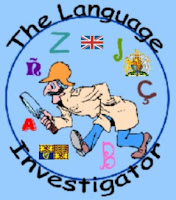 The Scottish parliament was never set up to reward Scotland for its 300 years of loyal service to the union, or to ensure that survival of Scottish identity in the 21st century. Rather, it was created with one clear purpose in mind: to kill Scottish nationalism stone dead. Yet the creation of a new Scottish parliament had to be done in such a way that it did not actually fan the flames of nationalism. Careful use of language in the new parliament had to be employed in order to ensure that the Scots did not get any ideas above their station.
The Scottish parliament was never set up to reward Scotland for its 300 years of loyal service to the union, or to ensure that survival of Scottish identity in the 21st century. Rather, it was created with one clear purpose in mind: to kill Scottish nationalism stone dead. Yet the creation of a new Scottish parliament had to be done in such a way that it did not actually fan the flames of nationalism. Careful use of language in the new parliament had to be employed in order to ensure that the Scots did not get any ideas above their station.There is a saying that a picture can paint a thousand words. Yet a word can paint a thousand pictures. Indeed, listen to any motivational speaker and they will all stress the importance of language in the framing of the mindset. This is why Labour employs terms like divorce and separation to scare people away from thoughts of independence (which linguistically is a positive term).
With regard to the creation of the parliament itself, Labour essentially renamed three key elements. Firstly there was the act of creating the parliament itself. Historically, this had always been known as Home Rule, yet this was ditched in favour of the considerably more obscure term, Devolution. The trouble was that Home Rule, as a term, would have likely been seen as a one-off event, with the potential danger that the Scots may have felt somewhat short-changed with the end result. Devolution, however, can be sold as a process and, as such, it gives the UK a comfort blanket – something to hide behind, because a process is forever ongoing and no eventual conclusion need ever be reached or even stated.
Secondly, the term Executive was employed instead of Government. There was a fear that by calling the Parliament’s governing body a Government, this would undermine the authority and status of the UK Government. In reality, what this did was to confuse people, with many unable to distinguish between the Scottish Parliament and its governing body. Thankfully, the SNP administration has now ditched the term Executive in favour of the term Government, ending a great deal of the confusion.
Thirdly, the term First Minister was used rather than the term Prime Minister. This is despite the fact that, from the years 1921 to 1972, there were actually two prime Ministers in the UK. One was the Prime Minister of the UK Government, the other was the Prime Minister of Northern Ireland and people at that time seemed perfectly able to distinguish between the two. Sadly, because of Labour's insistence on using the term First Minister, historians now have to refer to Donald Dewar as being Scotland’s First First Minister, something that sounds like poor grammar.















